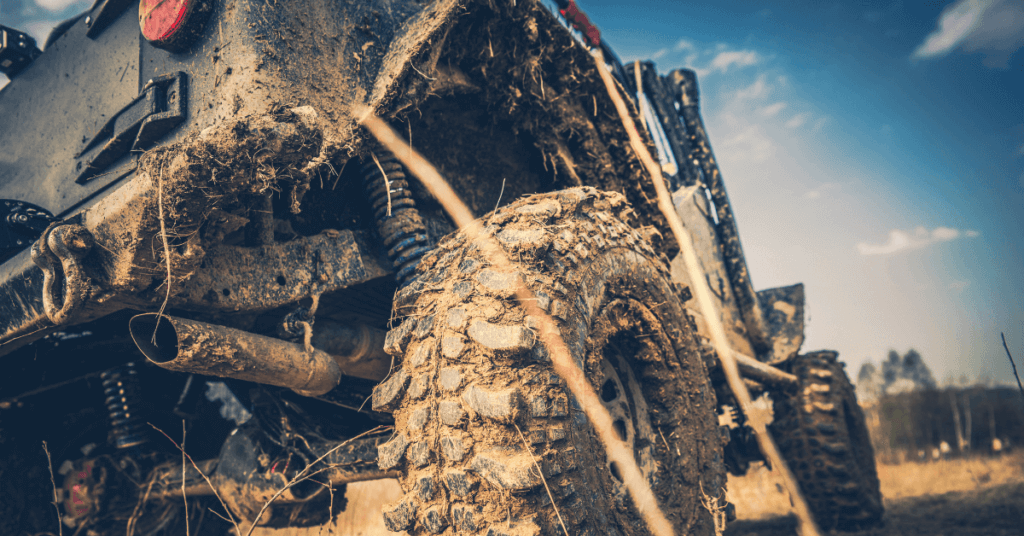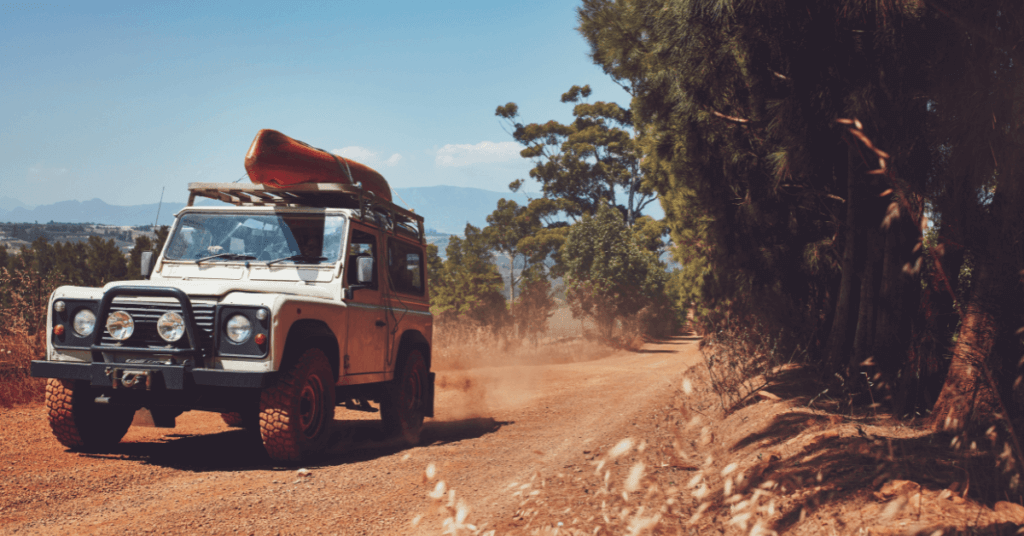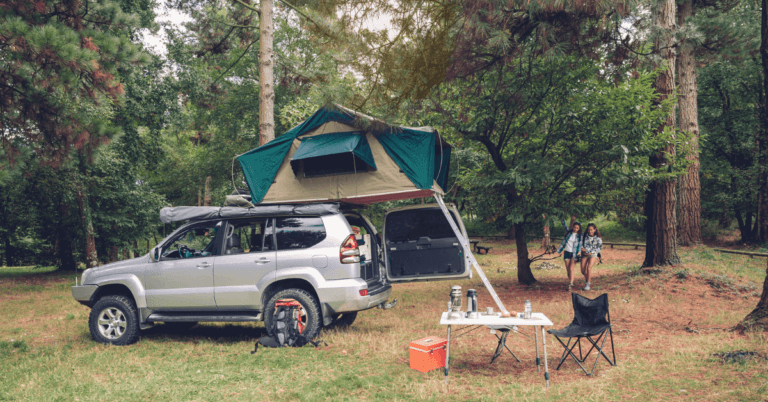Every overlander dreams of a thrilling adventure where no paths are paved. But to do so, you need the right equipment. Whether you’re going on a weekend trip or on a cross-continental adventure, it’s crucial for your safety that you have the correct type of offroad tires installed on your vehicle.
This guide will explore the different types of offroad tires to help you choose the perfect set for your next rugged journey.
All-Terrain Tires
All-terrain tires (AT) are a popular choice for off-road enthusiasts who also use their vehicles for everyday driving. These tires strike a balance between off-road capability and on-road comfort.
They feature a tread pattern that provides adequate traction on various surfaces, including dirt, gravel, sand, and pavement. All-terrain tires typically have larger voids between tread blocks for improved grip in mud and self-cleaning properties.
Mud-Terrain Tires
Designed for the muddiest and most challenging terrains, mud-terrain tires (MT) are a favorite among serious off-roaders. These tires feature aggressive tread patterns with deep, wide grooves and large lugs to provide maximum traction in mud, snow, and loose surfaces.Mud-terrain tires excel in self-cleaning, preventing mud and debris buildup that can hinder performance. However, they are noisier and less comfortable on paved roads than all-terrain tires.

Rock-Crawling Tires
Rock-crawling tires are engineered explicitly for conquering rocky terrain with jagged edges and uneven surfaces. These tires feature reinforced sidewalls to resist punctures and cuts from sharp rocks.
Their tread patterns often consist of large, staggered lugs and tire sipes for enhanced grip on rocks and boulders. Rock-crawling tires prioritize traction and durability over speed, making them ideal for slow and technical off-road maneuvers.
Snow Tires
Snow or winter tires are essential for driving in snowy and icy conditions. While not exclusively for off-road use, snow tires provide superior traction and handling on snow-covered trails and icy roads. They feature specialized rubber compounds and tread designs optimized for cold temperatures and snowy terrain.
Snow tires often have deeper grooves and sipes to bite into snow and maintain traction, keeping you safe during winter off-road adventures.
Sand Tires
Sand tires, also known as paddle tires, are designed for navigating soft, sandy terrain commonly found in deserts and dunes. Unlike off-road tires, sand tires have a distinctive paddle-like tread pattern with broad, shallow grooves.
This design allows them to float on the sand and propel the vehicle forward with minimal resistance. Sand tires are not suitable for other types of terrain and are primarily used in sand-specific off-road environments.

Conclusion
Selecting the right off-road tires is crucial for maximizing performance and safety in various off-road conditions. Whether you’re tackling mud, rocks, sand, or snow, there’s a specific tire designed to meet your needs. Understanding the differences between all-terrain, mud-terrain, rock-crawling, sand, and snow tires will help you choose the perfect set for your off-road adventures.

There are hundreds of tire brands, but if you want a good balance between quality and price, we recommend BF Goodrich Tires. They offer all kinds of tires, from all-around on-road to specialized off-road tires.
Remember to consider factors such as tread pattern, sidewall strength, and terrain compatibility when selecting off-road tires for your vehicle. With the right tires, you can conquer any off-road challenge with confidence and ease.
Hope to see you on the road,
Planet Doe
![]()
Just started your overland adventure? Go check out our guide to finding the perfect overland vehicle for you.







